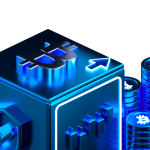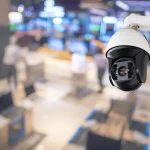Human Resource (HR) departments are under increasing pressure to become more strategic and efficient in a rapidly evolving workplace. From attracting top talent to enhancing employee experience and streamlining administrative processes, HR teams are constantly looking for new ways to innovate. One of the most transformative technologies driving this change is Generative AI. With its ability to automate and personalize processes at scale, generative AI is set to redefine how HR operates across the board.
To understand how this technology is impacting modern HR practices, it’s essential to explore how Generative AI for HR operations is being utilized today. Additionally, specialized HR AI agents are increasingly being developed to handle complex tasks that once required human oversight.
What Is Generative AI and Why HR Needs It
Generative AI refers to artificial intelligence systems that can create content, analyze data, and generate insights based on input data. In HR, this capability translates into faster resume screening, intelligent chatbot interactions for candidates and employees, personalized training content, and more.
Traditionally, HR departments have relied heavily on manual processes or legacy systems. These approaches are not only time-consuming but often fail to deliver the agility and personalization that today’s workforce demands. Enter generative AI—a technology that not only reduces manual workload but also enhances decision-making through data-driven insights.
Key Benefits of Generative AI for HR
1. Streamlined Recruitment
One of the most time-consuming tasks in HR is recruiting. From scanning resumes to scheduling interviews, these repetitive tasks can consume valuable HR bandwidth. Generative AI tools can automate much of this process. For example, AI-powered bots can screen resumes for job-specific keywords, recommend suitable candidates, and even draft initial outreach emails.
This means HR professionals can focus on high-level strategy and candidate engagement, rather than being bogged down by repetitive administrative work.
2. Enhanced Employee Onboarding
First impressions count, and the onboarding process is a critical phase in the employee lifecycle. Generative AI can create personalized onboarding experiences that guide new hires through company policies, training modules, and cultural introductions.
AI chatbots can answer FAQs in real-time, helping employees feel supported from day one. Generative AI also allows for dynamic content generation, meaning each onboarding experience can be tailored to the individual’s role, department, and location.
3. Personalized Learning and Development
A one-size-fits-all approach to employee development no longer works. Generative AI enables the creation of personalized learning paths based on an employee’s role, performance, and career aspirations.
From generating customized training materials to suggesting relevant e-learning modules, AI ensures that employees receive the training they need, when they need it. This not only enhances skill development but also boosts employee engagement and retention.
4. Intelligent Performance Management
Performance evaluations are often plagued by subjectivity and inconsistency. Generative AI can bring objectivity to this process by analyzing performance data, feedback, and productivity metrics to provide comprehensive insights.
AI systems can also suggest performance improvement plans and track progress over time, enabling more data-driven discussions during review periods.
5. Efficient HR Operations
Generative AI isn’t just about flashy applications; it also shines in the back office. Whether it’s generating payroll summaries, compiling compliance reports, or handling employee queries, AI can dramatically reduce the operational burden on HR teams.
Through intelligent automation, HR departments can operate more efficiently while minimizing the risk of human error.
Real-World Applications: HR AI Agents in Action
HR AI agents are specialized tools designed to handle specific HR functions autonomously or semi-autonomously. These agents can perform tasks like screening applicants, managing employee records, or even conducting initial interviews through conversational interfaces.
For instance, HR AI agents can integrate with Applicant Tracking Systems (ATS) to automatically shortlist candidates based on historical hiring data. They can also analyze engagement levels using data from surveys, emails, and internal communication tools, offering recommendations to improve workplace morale.
These agents are not just about automation—they are about augmentation. They empower HR professionals to make faster, better-informed decisions by giving them access to insights they wouldn’t easily find manually.
Overcoming Challenges in AI-Driven HR
While the benefits are substantial, adopting generative AI in HR is not without challenges. Concerns around data privacy, algorithmic bias, and transparency must be addressed to ensure ethical use of AI.
1. Ensuring Fairness
AI systems are only as unbiased as the data they are trained on. If historical hiring data contains bias, AI tools may unintentionally perpetuate it. Organizations need to audit AI tools regularly to ensure they align with diversity, equity, and inclusion (DEI) goals.
2. Data Security and Privacy
Handling sensitive employee data requires a robust security framework. Organizations must ensure that AI systems comply with data protection regulations like GDPR or CCPA to maintain employee trust.
3. Human Oversight
Generative AI should not be seen as a replacement for human judgment. Instead, it should serve as a tool that enhances human capabilities. HR professionals should always have the final say, especially in decisions that affect people’s careers and livelihoods.
The Future of HR with Generative AI
The future of HR is not just digital—it’s intelligent. As generative AI technologies continue to mature, we can expect to see even more sophisticated applications. Predictive analytics will play a bigger role, helping HR anticipate workforce needs before they arise. Sentiment analysis will provide real-time insights into employee morale. And virtual assistants will become more conversational, blurring the line between human and machine interaction.
Ultimately, the HR department of the future will be more strategic, more agile, and more human-centric—thanks to the power of generative AI.
Final Thoughts
The integration of Generative AI for HR operations and HR AI agents into daily HR functions is not just a trend—it’s a transformative shift. By embracing these technologies, organizations can free up their HR teams to focus on what truly matters: building a resilient, engaged, and high-performing workforce.
For HR professionals looking to stay ahead of the curve, now is the time to explore how generative AI can enhance both employee experience and organizational efficiency.
READ ALSO: Real Estate in Portugal: A Gateway to Mediterranean Living









